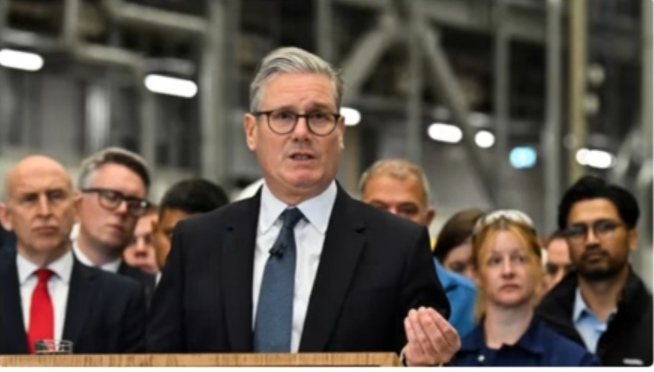
In response to rising global threats — especially from Russia — the United Kingdom has unveiled a bold new defence strategy that marks the most significant military shift in decades. The 2025 Strategic Defence Review outlines a plan to modernize British forces, increase army numbers, and potentially reintroduce air-launched nuclear weapons.
The British Army is set to grow to 76,000 full-time soldiers, and defence spending will rise to 2.5% of GDP by 2027. Investments include £15 billion for the Astraea nuclear warhead, new submarines, AI technologies, and long-range missile systems. These moves reflect growing NATO concerns over Russian aggression and a changing global security environment.
In a dramatic development, the UK is reportedly in talks to acquire F-35A Lightning II fighter jets from the U.S., which are capable of carrying B61-12 tactical nuclear bombs. This would mark the UK’s return to airborne nuclear capability for the first time since 1998. These jets would complement the UK’s submarine-based deterrent and strengthen NATO’s nuclear sharing arrangements.
Despite the military build-up, British officials have stressed there are no current plans for conscription. The Armed Forces will remain voluntary, though leaders like General Sir Patrick Sanders have urged the public to be prepared for future crises.
The UK is not on the brink of war, but officials admit the global landscape is more dangerous than it has been in 70 years. The government’s message is clear: Britain must be “battle-ready” for an unpredictable future.
This new defence strategy seems like a significant shift in the UK’s approach to global security. It’s interesting to see the focus on modernizing forces and reintroducing airborne nuclear capabilities. However, I wonder if this move might escalate tensions rather than deter them. The emphasis on being “battle-ready” feels a bit alarming—shouldn’t diplomacy take precedence in such uncertain times? Also, what does this mean for the UK’s role within NATO? Is this a step toward greater collaboration or a move to assert independence? And how does the public feel about this shift—are they supportive or concerned? I’d love to hear more about the long-term vision behind this strategy.
By the way, we’ve integrated libersave into our regional voucher system. It’s amazing how easily it allows us to combine various providers on a single platform.